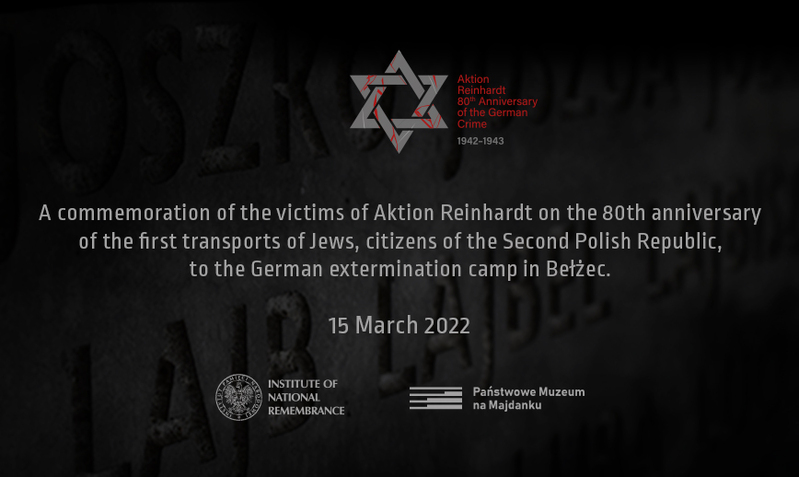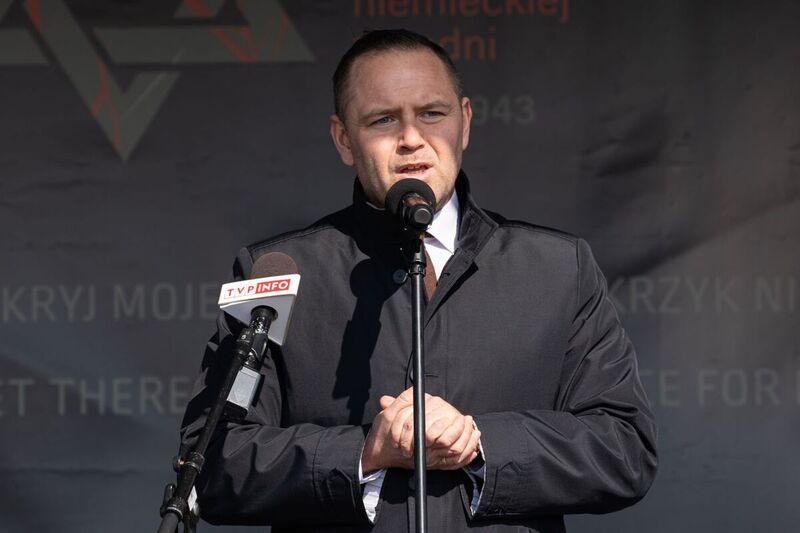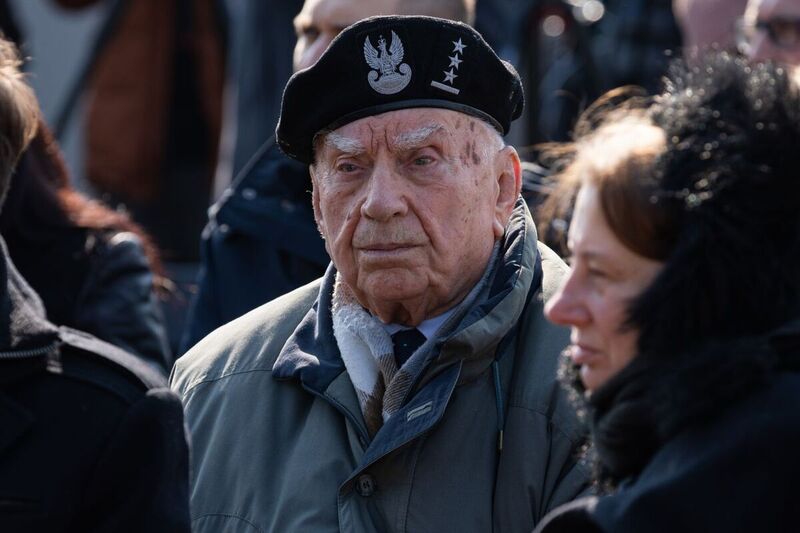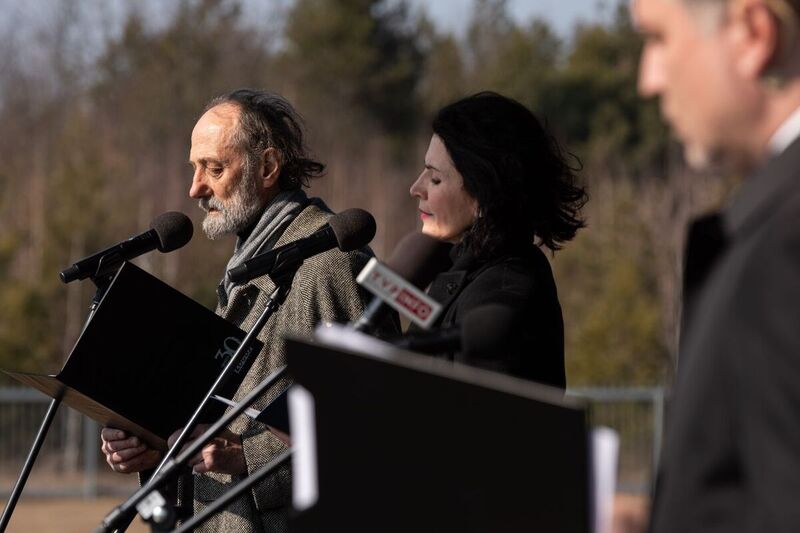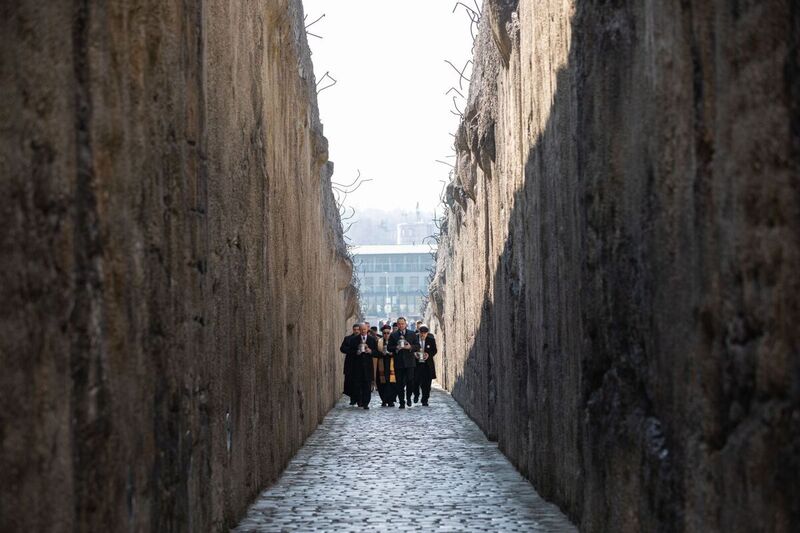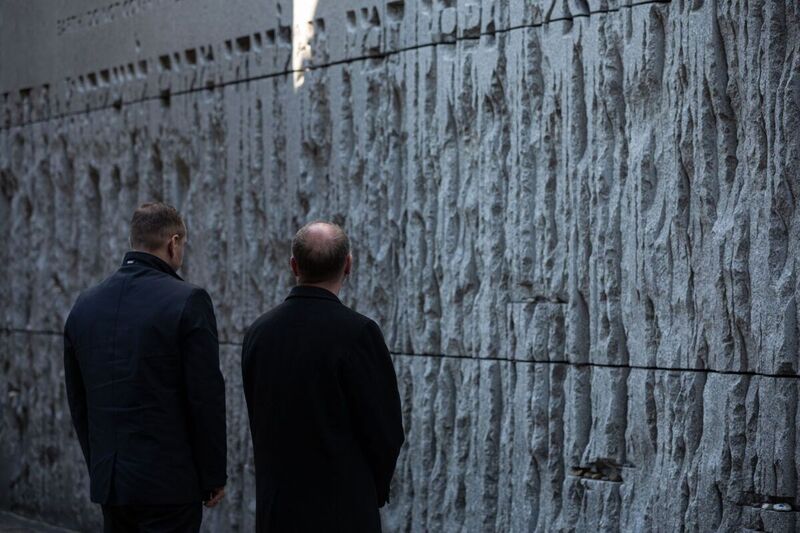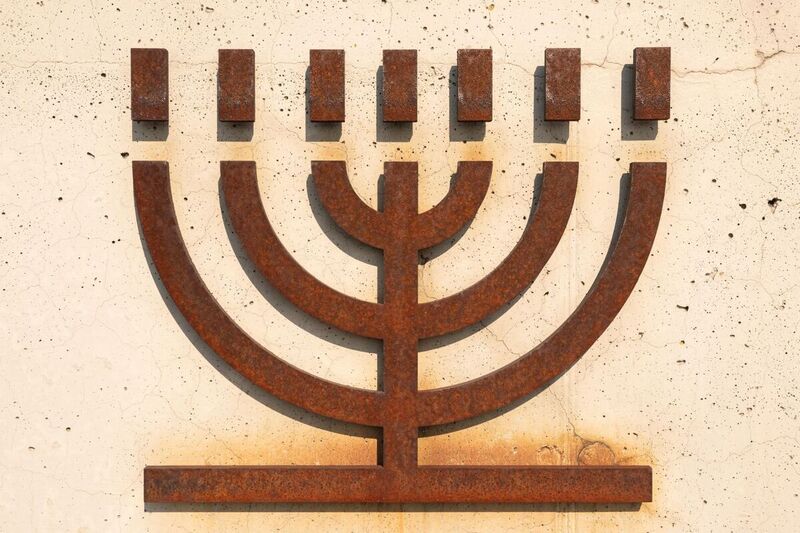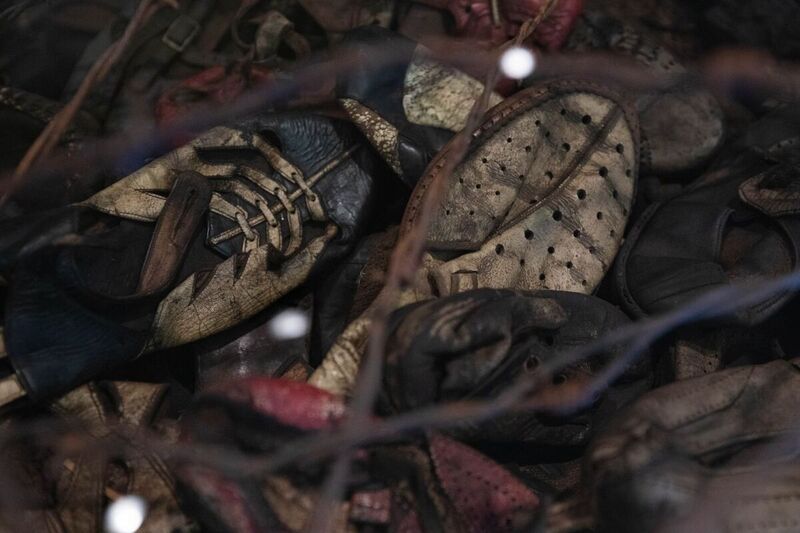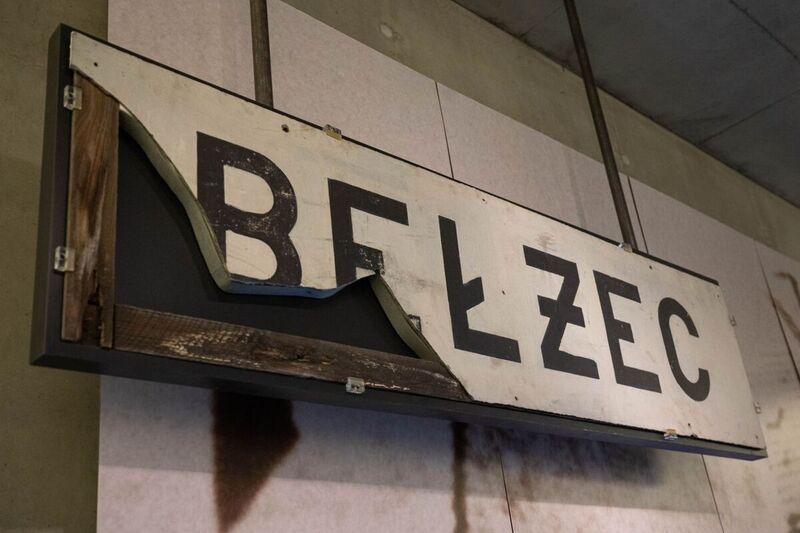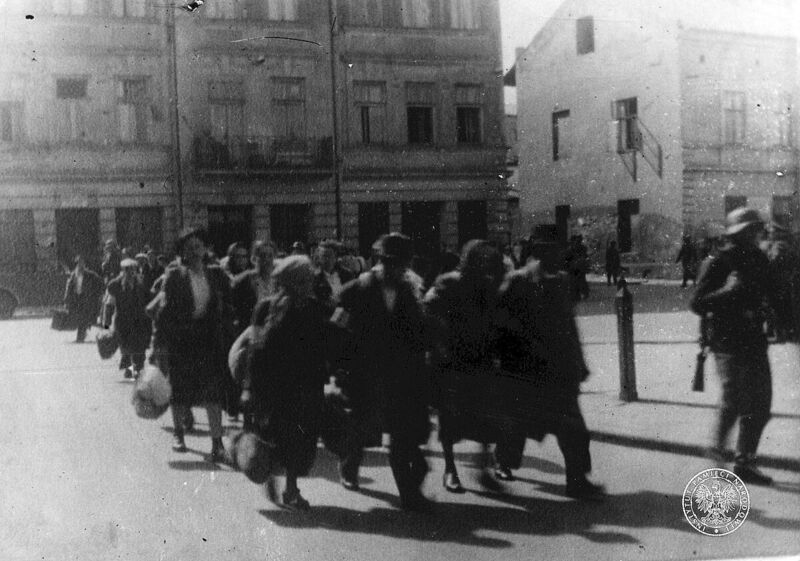The organisers of the ceremony were the Institute of National Remembrance and the State Museum at Majdanek, of which the Bełżec Museum and Memorial is a branch. Participants to the ceremony also included representatives of the highest state authorities, the Office of the President of the Polish Republic, the Office of the Prime Minister, and the Seym, Senate and government ministries. Representatives of local authorities of places whose inhabitants were murdered at the German extermination camp in Bełżec as part of Operation Reinhardt were present as well. Churches and faith groups were also represented at the ceremony, among them by the Chief Rabbi of Poland Michael Schudrich.
In a place like this one, a German extermination camp, and on a day like today, the eightieth anniversary of a monstrous operation, the most telling reaction is silence . . . still, there are words to be said in this time and place – words for future generations.(...) Whenever lies and propaganda replace the truth, when disdain replaces values, when a fellow human being is denied the right to live and nations the right to exist, all it takes to make hell on earth a very real possibility is to throw in some historical amnesia.
-- said the IPN's President Karol Nawrocki, Ph.D.
During the ceremony, testimonies of two witnesses who survived the Bełżec camp, Pola Hirszman and Rudolf Reder, were read out. The testimony of Eustachy Ukraiński, a teacher from the school in Bełżec, was also presented. A prayer of remembrance for the victims of the camp was said, and finally the participants in the commemoration paid tribute to the victims of genocide by lighting candles in the Ohel nich.
The evil escalates. Barbarity, war and death always frighten, always terrify, always hurt – but are not surprising. Hardly ever do they come as a surprise. First come the words, then a procedure, next a plan, and finally an operation - until destruction.
-- concluded Karol Nawrocki, Ph.D.
The Operation Reinhard: on the night of 16 to 17 March 1942, the first transports of Jews from Lublin and Lviv arrived at Bełżec. These actions were conducted under the code name “Operation Reinhardt”, assigned in 1942 in memory of the head of the German Security Main Office, Reinhard Heydrich. The victims of the Operation Reinhardt were mainly killed at the specially organised German death camps in Treblinka, Bełżec and Sobibór. The Majdanek concentration camp was another place of suffering and death.
The genocide of the Jews in the General Government was an integral part of the “final solution of the Jewish question in Europe” carried out by the German authorities. Operation Reinhardt, which lasted from March 1942 to November 1943, involved the murder of around two million Jews. Most of those killed were the Jews from the territory of the General Government, the Białystok district and the Reichskommissariat Ostland. The victims also included Jewish communities from the Protectorate of Bohemia and Moravia, Slovakia, Germany, Austria, Greece, Yugoslavia, France, Holland and Belarus. In December 1942, the camp was shut down. Over the next few months the Germans attempted to cover the traces of their crimes.
The 80th anniversary of beginning of Operation Reinhardt
The Institute of National Remembrance will organise a range of activities all over Poland to commemorate the 80th anniversary of the massacre of Polish Jews. Throughout the year, scientific conferences, symposiums, lectures, discussions, seminars, film screening, exhibitions and competitions will be organised. Academic and popular scientific publications will be issued, as well as special press features will be launched.
